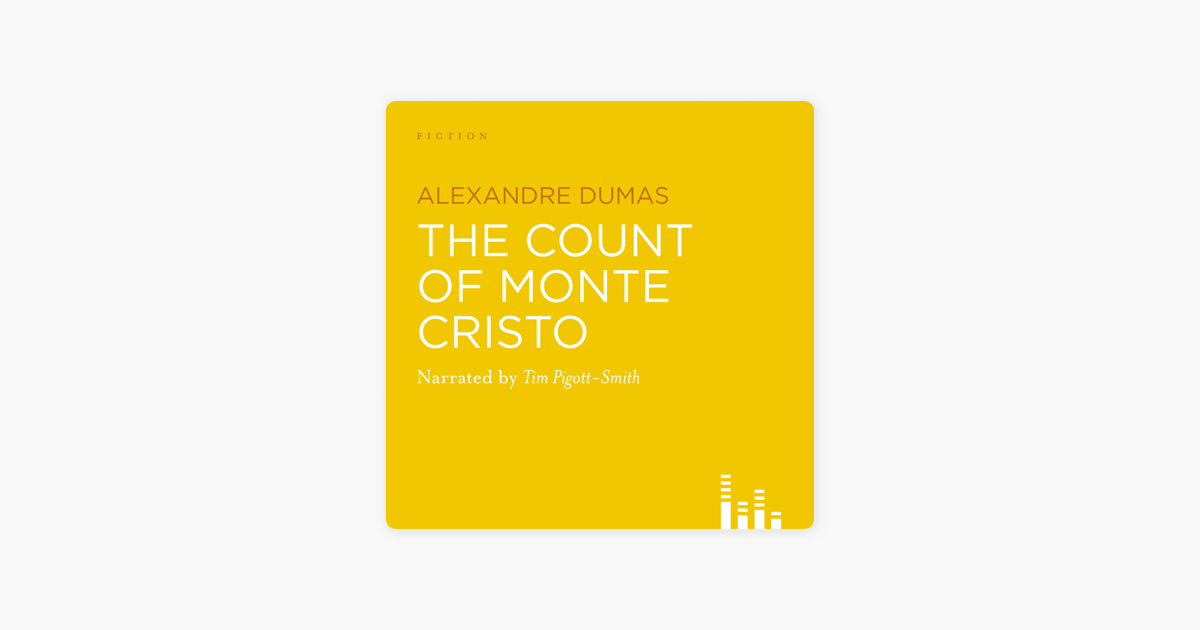Is The Count Of Monte Cristo Still Relevant Today? A Book Review

Table of Contents
Themes of Revenge and Justice in a Modern Context
Edmond Dantès's quest for revenge forms the dramatic heart of The Count of Monte Cristo. His wrongful imprisonment and the subsequent destruction of his life fuel a burning desire for retribution against those who betrayed him. This theme of revenge, though morally complex, holds a timeless appeal. We're all familiar with the feeling of injustice, the sense that the scales of justice haven't been balanced. This resonates deeply with contemporary audiences who grapple with systemic inequalities and pervasive injustices.
- Modern Parallels to Dantès's Injustice: Consider the numerous modern cases of wrongful convictions, police brutality, and systemic biases within justice systems worldwide. These real-world examples mirror Dantès's plight, highlighting the enduring vulnerability of individuals to powerful forces.
- Ethical Implications of Revenge: The Count of Monte Cristo doesn't shy away from exploring the ethical complexities of revenge. While we might initially sympathize with Edmond's desire for justice, the novel also depicts the corrosive nature of his pursuit, questioning whether revenge ultimately brings true satisfaction or only further suffering.
- Revenge vs. Forgiveness: The novel presents a stark contrast between the destructive path of revenge and the potential for forgiveness and reconciliation. This dichotomy continues to be a central theme in contemporary discussions about restorative justice and conflict resolution. Is revenge truly the best path to justice, or are there more constructive, healing alternatives?
Exploring Power, Betrayal, and Corruption – Then and Now
Dumas masterfully portrays the intricate web of power, betrayal, and corruption that ensnares Edmond Dantès. The novel exposes the manipulative machinations of those in positions of authority, highlighting the ease with which ambition and greed can corrupt even the most seemingly virtuous individuals. These themes are sadly just as relevant today.
- Power Dynamics in Society: The novel depicts various forms of power – social, economic, and political – and how these forms intertwine and influence individual actions. This resonates deeply with contemporary society, where the concentration of power in the hands of a few continues to raise ethical concerns.
- Betrayal and its Consequences: The betrayals suffered by Edmond Dantès, stemming from envy, ambition, and personal vendettas, are painfully realistic. The consequences of these actions, both for the perpetrators and the victim, are meticulously detailed, offering a cautionary tale about the destructive nature of deceit and treachery.
- Corruption in Modern Society: From corporate malfeasance to political scandals, the novel's depiction of corruption finds echoes in modern headlines. The abuse of power, the manipulation of systems, and the disregard for ethical principles are pervasive issues that continue to plague societies globally. The Count of Monte Cristo serves as a potent reminder of the insidious nature of corruption and its far-reaching consequences.
The Enduring Appeal of The Count of Monte Cristo's Characters
The enduring power of The Count of Monte Cristo lies not only in its plot but also in the depth and complexity of its characters. They are flawed, driven by ambition, capable of both great love and terrible cruelty. This resonates with modern readers who appreciate nuanced characters rather than simplistic archetypes.
- Edmond Dantès's Transformation: The character arc of Edmond Dantès is arguably the novel’s most compelling aspect. His transformation from an innocent young man to a master of disguise and revenge is both fascinating and disturbing. This evolution allows for exploration of the human capacity for both good and evil.
- Supporting Characters and Their Roles: The supporting cast of characters, including Fernand Mondego, Danglars, and Villefort, are equally compelling. Their motivations, flaws, and interactions with Edmond drive the narrative and contribute to the overall complexity of the story.
- Relatable Characters: The characters' desires, fears, and relationships are universally relatable. Whether it's the pain of betrayal, the allure of power, or the complexities of love and vengeance, the novel explores these themes with a timeless understanding of the human heart.
The Literary Merit and Impact of The Count of Monte Cristo
The Count of Monte Cristo is not just a thrilling adventure; it’s a literary masterpiece. Dumas’s masterful storytelling, vivid descriptions, and intricate plot have had a profound impact on subsequent literature and popular culture.
- Dumas's Writing Style and Narrative Techniques: Dumas’s writing style, characterized by its dramatic flair, vivid descriptions, and suspenseful pacing, has influenced generations of writers. His use of cliffhangers, plot twists, and memorable characters is still employed by authors today.
- Influence on Adventure Literature: The novel's influence on the adventure genre is undeniable. Its blend of action, intrigue, and romance has inspired countless imitations and reimaginings.
- Adaptations and Interpretations: The novel has been adapted numerous times for film, television, and stage, showcasing its enduring appeal and its capacity for reinterpretation across different mediums. These adaptations demonstrate the novel's continued relevance and its ability to resonate with contemporary audiences.
Conclusion: The Continuing Relevance of The Count of Monte Cristo
In conclusion, The Count of Monte Cristo remains a powerfully relevant work of literature. Its exploration of revenge, justice, power, betrayal, and the complexities of the human character transcends its historical context. The novel’s timeless themes continue to resonate with modern readers, prompting reflection on issues of justice, morality, and the human condition. Rediscover the timeless appeal of The Count of Monte Cristo and explore its enduring relevance in your own life. Is The Count of Monte Cristo on your reading list? It should be!

Featured Posts
-
 New Details Surface Gigi Hadids Relationship With Bradley Cooper
May 04, 2025
New Details Surface Gigi Hadids Relationship With Bradley Cooper
May 04, 2025 -
 Ufc Bogeyman Seven Straight Wins Culminate In Controversial Knockout
May 04, 2025
Ufc Bogeyman Seven Straight Wins Culminate In Controversial Knockout
May 04, 2025 -
 Is The Future Of Offshore Wind In Jeopardy Due To Expense
May 04, 2025
Is The Future Of Offshore Wind In Jeopardy Due To Expense
May 04, 2025 -
 S Sh A I Evropa Analiz Strategicheskikh Vzaimodeystviy
May 04, 2025
S Sh A I Evropa Analiz Strategicheskikh Vzaimodeystviy
May 04, 2025 -
 Nyc Suburban Areas Brace For Spring Snow 1 2 Inch Accumulation Forecast
May 04, 2025
Nyc Suburban Areas Brace For Spring Snow 1 2 Inch Accumulation Forecast
May 04, 2025
